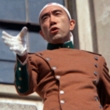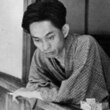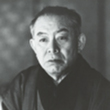The flowers of buffoonery
Description
More Details
Similar Titles From NoveList
Similar Authors From NoveList
Published Reviews
Publisher's Weekly Review
This beguiling novella from Dazai (1909--1948) revisits the protagonist from the author's No Longer Human at a younger age. Yozo Oba, 25, an artist--cum--Marxist agitator from a once-wealthy family, has just survived an attempted suicide after jumping off a seaside cliff with his lover, Sono, who drowned. A series of asides from Dazai break the fourth wall, either bemoaning the author's choices for characterization and plot--"My fear of being ridiculed is so intense I'd rather beat my critics to the punch"--or haranguing the reader for passing judgment on Yozo and the friends and relatives who visit and exchange laughter during Yozo's convalescence at a sanatorium ("How cruel of you. What part of what you see here is carefree?"). More complicated, and more intriguing, is the truth behind Yozo and Sono's jump. Initially, Dazai casts Yozo as a murderer ("In my satanic insolence, I prayed for my salvation in the same breath that I prayed Sono would die," Yozo thinks shortly after his rescue), but that becomes complicated as Dazai brings wit and pathos to the chronicle of Yozo's four days at the sanatorium, as Yozo's jocular banter with an art school classmate, a younger cousin, and a nurse belie a deep despair. In a few artful strokes, Dazai has sketched a memorable character. (Mar.)
Publishers Weekly Reviews
This beguiling novella from Dazai (1909–1948) revisits the protagonist from the author's No Longer Human at a younger age. Yozo Oba, 25, an artist–cum–Marxist agitator from a once-wealthy family, has just survived an attempted suicide after jumping off a seaside cliff with his lover, Sono, who drowned. A series of asides from Dazai break the fourth wall, either bemoaning the author's choices for characterization and plot—"My fear of being ridiculed is so intense I'd rather beat my critics to the punch"—or haranguing the reader for passing judgment on Yozo and the friends and relatives who visit and exchange laughter during Yozo's convalescence at a sanatorium ("How cruel of you. What part of what you see here is carefree?"). More complicated, and more intriguing, is the truth behind Yozo and Sono's jump. Initially, Dazai casts Yozo as a murderer ("In my satanic insolence, I prayed for my salvation in the same breath that I prayed Sono would die," Yozo thinks shortly after his rescue), but that becomes complicated as Dazai brings wit and pathos to the chronicle of Yozo's four days at the sanatorium, as Yozo's jocular banter with an art school classmate, a younger cousin, and a nurse belie a deep despair. In a few artful strokes, Dazai has sketched a memorable character. (Mar.)
Copyright 2022 Publishers Weekly.






























